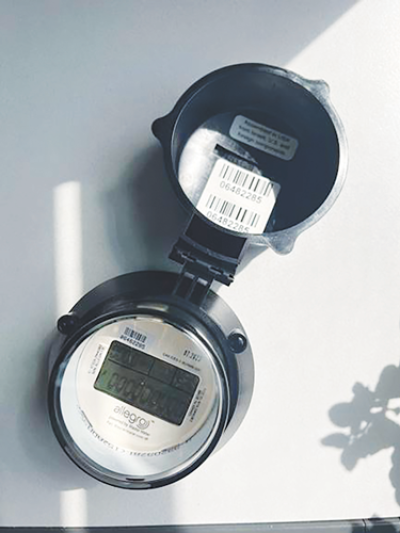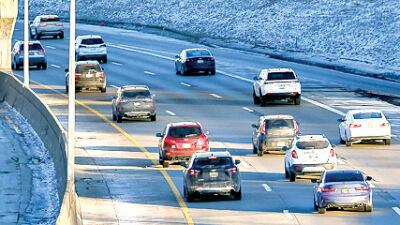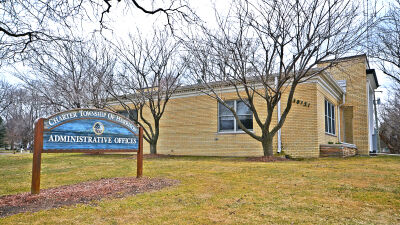
The Master Meter water meter registers being installed in Harrison Township send out radio signals for billing. If residents would like the radio-equipped meter readers installed, a policy passed at the Oct. 7 Board of Trustees meeting allows for optional manual readings at an annual cost of $400.
Photo provided by Harrison Township
HARRISON TOWNSHIP — With Harrison Township installing new water meter readers throughout the township, the township Board of Trustees approved new policies on Oct. 7 to anticipate residents hesitant to have the new readers in their home.
The new Master Meter water meter registers being installed throughout the township send out radio signals for billing purposes. Recognizing some residents may have issues with a radio-equipped device being installed at their homes, a new policy to manually read water meters was created.
The new, optional manual reading policy will allow residents to send in a dated image of their meter within 15 days of receiving an email from the township. Opted-in residents also consent to having a township employee manually read their meter once a year. An additional $100 fee for manual reading will be added to each opted-in resident’s water bills and failing to send a dated picture of their meter by the requested time will result in a $100 fine on top of an estimated reading being assessed.
“If you said, ‘I don’t want a radio device in my home,’ go ahead,” Township Supervisor Ken Verkest said. “Once every three months, you go downstairs, take a picture. You send us an email. We bill you for that. If you’re truly someone who wants to go along with the plan, once a year we go into your home and the meter will be right. No penalty.”
The extra $100 per billing cycle aims to cover the labor costs of manually reading the meters. Failure to comply with the new policy will lead to water services being shut off.
“If this is what you want to do, you’re going to pay $400 a year to follow this policy,” Verkest said. “The majority of people don’t want this, but our experience of watching what happened with bigger utilities was that there was a need to give the customer an alternative.”
Verkest said he plans to take part in the policy in order to understand directly how this new process will work.
“I have no problem with this system, but in order to understand what it looks like, I’m willing to subject myself to these rules,” Verkest said.
Sewer overflow support
Trustees also approved a resolution supporting bills 5917 and 5918 in the Michigan House of Representatives.
Introduced by state Rep. Alicia St. Germaine, R-Harrison Township, the bills aim to amend Michigan’s Natural Resources and Environmental Protection Act to establish new rules for sewage discharge permits and a $500,000 fine if at least a 24 -our notice is not given for a discharge.
The bills and resolution come amid long-standing accusations from Macomb County Public Works Commissioner Candice Miller and other county officials that Oakland County is releasing partially treated wastewater into Lake St. Clair via the Red Run and the lack of penalties Oakland County has received for it.
“When we receive those discharge reports, we see the millions of gallons of untreated sewage,” Harrison Township Trustee Dean Olgiati said. “There are no repercussions whatsoever.”
The resolution will be sent to St. Germaine, state Representative Jay DeBoyer, R-Clay Township, House Speaker Joe Tate, D-Detroit, House Minority Leader Matt Hall, R-Richland Township, and Gov. Gretchen Whitmer.
 Publication select ▼
Publication select ▼















